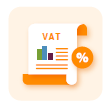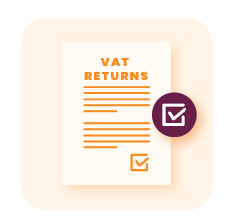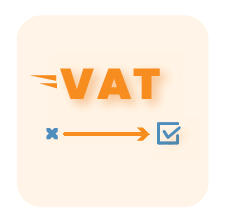VAT Registration in the UK
Taxpayers in the UK are required to apply to HMRC (Her Majesty’s Revenue and Customs) in order to register for VAT (Value Added Tax). Most VAT registration applications can be conveniently completed online through HMRC’s Online Service Portal, which serves multiple registration purposes.
It’s important to note that a business becomes liable for VAT from the date it is obligated to be registered or from the date it requests voluntary registration to commence, known as the “effective date.” This liability does not start from the date of application submission or the receipt of the VAT registration number.
Group Registration
Under UK VAT law, grouping is not mandatory but rather optional. Each eligible entity has the choice to either join a group or refrain from doing so. Similarly, entities that meet the eligibility criteria to form a single group have the option to create multiple groups instead.
Voluntary Registration
In certain situations, individuals or entities that are not obligated to register for UK VAT have the option to do so voluntarily. By opting for voluntary registration, they become eligible to reclaim input VAT.
Under Schedule 1 of the VAT Act 1994, individuals or entities who are making or planning to make taxable supplies that do not exceed the registration threshold can choose to register voluntarily.
Furthermore, UK-based individuals or entities may also opt for voluntary registration if they do not make any taxable supplies within the UK but engage in making or intending to make supplies outside the UK that would be considered taxable supplies if made within the UK.
Exemptions from Registration
In the UK, businesses that are established in the country are not obligated to register for VAT if their taxable turnover does not surpass the registration threshold. Additionally, registration is not required for businesses that are exempt from VAT or for individuals or entities that are not considered to be engaged in “business” activities.
According to Schedule 1(1)(3) of the VAT Act 1994, businesses that temporarily exceed the 12-month sales registration threshold have the option to request an exemption from registration. To be eligible for exemption, they must demonstrate to HMRC that the value of their taxable supplies within a one-year period, starting from the point at which registration would otherwise be triggered, will not exceed the deregistration threshold.
Group and Divisional Registration
Section 43A of the VAT Act 1994 outlines the conditions under which certain persons can form a group.
These conditions include:
One person exercises control over the other person(s), or all the persons involved are under common control.
All the persons involved are either established in the UK or have a fixed establishment within the UK.
To qualify for grouping, these criteria must be met, meaning that either one person has control over the others or there is a shared control among all the persons involved. Additionally, all the persons in the group must either be established in the UK or have a fixed establishment within the UK.
According to Section 46(1) of the VAT Act 1994, a body corporate that operates multiple divisions within its business can choose to register those divisions separately, subject to approval from HMRC.
For divisional registration to be granted, the following conditions must be met:
- All divisions, regardless of whether they make taxable supplies, must register.
- Each division should function as an independent unit with its own accounting system and operate from distinct geographical locations.
- All divisions should have the same VAT periods.
- Each division’s transactions must be fully taxable, meaning there should be no exempt sales within the divisions.
- It’s important to note that divisional registration does not imply that the separate divisions are considered separate taxable persons. The legal entity as a whole is still regarded as a single taxable person and remains responsible for the VAT obligations of all its divisions.
VAT Representatives
Under Section 48 of the VAT Act 1994, if a non-UK established business operates in a country or territory that lacks provisions for mutual assistance in VAT enforcement, HMRC has the authority to demand the appointment of a VAT representative established in the UK. This requirement aims to facilitate the administration of VAT liabilities for such businesses.
It’s important to note that appointing a VAT representative is not an alternative to VAT registration but an alternative method for managing the resulting VAT obligations. The VAT representative is responsible for maintaining VAT records and handling UK VAT on behalf of the represented taxpayer. They share joint and several liability with the taxpayer for any VAT debts incurred by the business.
A non-UK established business that is not obligated to appoint a VAT representative has the choice to do so voluntarily. Alternatively, the business may appoint an agent to handle VAT returns and account for VAT on its behalf. Unlike a VAT representative, an agent does not bear joint and several liability for the VAT debts of the business they represent.
Last Updated: 28/08/2023
Disclaimer
The information provided by Global VAT Compliance B.V. on this webpage is intended for general informational purposes only. Global VAT Compliance B.V. is not responsible for the accuracy of the information on these pages, and cannot be held liable for claims or losses deriving from the use of this information. If you wish to receive VAT related information please contact our experts at support@gvc.tax







